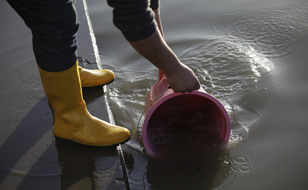Flood Advice
Tips On Minimising Damage
Last updated:
 Have you been affected by the recent floods and need to make a claim? At Chill we have a dedicated claims team ready to handle any event, and deal with insurance companies on your behalf to ensure a fair and speedy settlement. Need help or guidance on making a claim? Give us a shout on 01 4003400 or click here and we'll call you! In the meantime here is some helpful advice on making a home insurance claim and what to do in the aftermath of the flood.
Have you been affected by the recent floods and need to make a claim? At Chill we have a dedicated claims team ready to handle any event, and deal with insurance companies on your behalf to ensure a fair and speedy settlement. Need help or guidance on making a claim? Give us a shout on 01 4003400 or click here and we'll call you! In the meantime here is some helpful advice on making a home insurance claim and what to do in the aftermath of the flood.
Making a Claim
The key points to remember are:
- Get in touch with Chill as soon as possible
- If it is safe to do so, take any emergency action necessary to protect your property from further damage
- Please do not complete repairs until your insurer has had the opportunity to inspect the damage
10 Tips on Clearing Up After a Flood
There are a number of things to be aware of when clearing up after a flood
- Flood water can contain sewage, chemicals and animal waste. Always wear:
- Waterproof outerwear, including gloves
- Wellington boots
- A face mask
- If your electricity supply is not already switched off at the mains, get a qualified person to do this. DO NOT touch sources of electricity when standing in flood water
- If you have gas or oil central heating and it has been checked by an engineer, turn it on. Keep the thermostat between 20-22 degrees centigrade for steady drying
- You can get water out of your property using a pump and generator. Position the generator outside in the open air as generators produce carbon monoxide fumes which can kill
- Only pump out water when flood levels outside your property start to be lower than inside. This reduces the risk of structural damage
- Shovel mud away evenly from both sides of a wall. This stops pressure building up on one side
- You can clean and disinfect your property using ordinary household products
- A garden hose is useful for washing down. Do not use high-pressure hoses as they blast contaminated matter into the air
- If you are drying your property naturally, keep doors and windows open as much as possible. If using dehumidifiers, close external doors and windows
- Local councils usually provide skips and extra rubbish collections for items that your insurance company has agreed you can throw away
First published
by Ian O'Reilly
